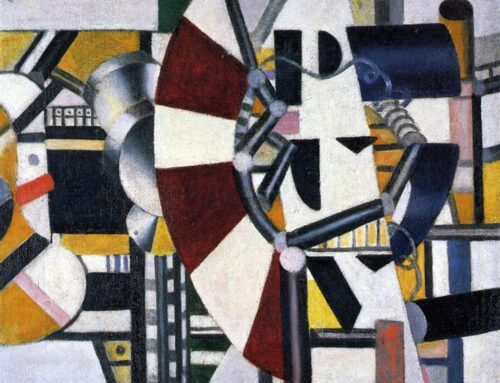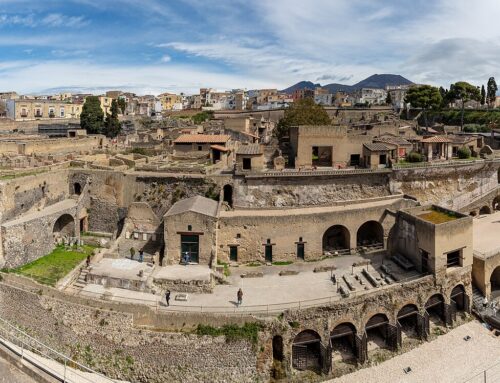Medicine, morality, and suffering: what can experience teach us about medical objectivity?
“There is no real difference between a warm, snug study and this ward,” said Andrey Yefimitch. “A man’s peace and contentment do not lie outside a man, but in himself.”
“What do you mean?”
“The ordinary man looks for good and evil in external things – that is, in carriages, in studies – but a thinking man looks for it in himself.”
“You should go and preach that philosophy in Greece, where it’s warm and fragrant with the scent of pomegranates, but here it is not suited to the climate. With whom was it I was talking of Diogenes? Was it with you?”
“Yes, with me yesterday.”
“Diogenes did not need a study or a warm habitation; it’s hot there without. You can lie in your tub and eat oranges and olives. But bring him to Russia to live: he’d be begging to be let indoors in May, let alone December. He’d be doubled up with the cold.”
“No. One can be insensible to cold as to every other pain. Marcus Aurelius says: ‘A pain is a vivid idea of pain; make an effort of will to change that idea, dismiss it, cease to complain, and the pain will disappear.’ That is true. The wise man, or simply the reflecting, thoughtful man, is distinguished precisely by his contempt for suffering; he is always contented and surprised at nothing.”
“Then I am an idiot, since I suffer and am discontented and surprised at the baseness of mankind.”
“You are wrong in that; if you will reflect more on the subject you will understand how insignificant is all that external world that agitates us. One must strive for the comprehension of life, and in that is true happiness.”
“Comprehension . . .” repeated Ivan Dmitritch frowning. “External, internal. . . . Excuse me, but I don t understand it. I only know,” he said, getting up and looking angrily at the doctor – “I only know that God has created me of warm blood and nerves, yes, indeed! If organic tissue is capable of life it must react to every stimulus. And I do! To pain I respond with tears and outcries, to baseness with indignation, to filth with loathing. To my mind, that is just what is called life. The lower the organism, the less sensitive it is, and the more feebly it reacts to stimulus; and the higher it is, the more responsively and vigorously it reacts to reality. How is it you don’t know that? A doctor, and not know such trifles! To despise suffering, to be always contented, and to be surprised at nothing, one must reach this condition” – and Ivan Dmitritch pointed to the peasant who was a mass of fat – “or to harden oneself by suffering to such a point that one loses all sensibility to it — that is, in other words, to cease to live. You must excuse me, I am not a sage or a philosopher,” Ivan Dmitritch continued with irritation, “and I don’t understand anything about it. I am not capable of reasoning.”
“On the contrary, your reasoning is excellent.”
“The Stoics, whom you are parodying, were remarkable people, but their doctrine crystallized two thousand years ago and has not advanced, and will not advance, an inch forward, since it is not practical or living. It had a success only with the minority which spends its life in savouring all sorts of theories and ruminating over them; the majority did not understand it. A doctrine which advocates indifference to wealth and to the comforts of life, and a contempt for suffering and death, is quite unintelligible to the vast majority of men, since that majority has never known wealth or the comforts of life; and to despise suffering would mean to it despising life itself, since the whole existence of man is made up of the sensations of hunger, cold, injury, and a Hamlet-like dread of death. The whole of life lies in these sensations; one may be oppressed by it, one may hate it, but one cannot despise it. Yes, so, I repeat, the doctrine of the Stoics can never have a future; from the beginning of time up to to-day you see continually increasing the struggle, the sensibility to pain, the capacity of responding to stimulus.”
Ivan Dmitritch suddenly lost the thread of his thoughts, stopped, and rubbed his forehead with vexation.
“I meant to say something important, but I have lost it,” he said. “What was I saying? Oh, yes! This is what I mean: one of the Stoics sold himself into slavery to redeem his neighbour, so, you see, even a Stoic did react to stimulus, since, for such a generous act as the destruction of oneself for the sake of one’s neighbour, he must have had a soul capable of pity and indignation. Here in prison I have forgotten everything I have learned, or else I could have recalled something else. Take Christ, for instance: Christ responded to reality by weeping, smiling, being sorrowful and moved to wrath, even overcome by misery. He did not go to meet His sufferings with a smile, He did not despise death, but prayed in the Garden of Gethsemane that this cup might pass Him by.”
Ivan Dmitritch laughed and sat down.
“Granted that a man’s peace and contentment lie not outside but in himself,” he said, “granted that one must despise suffering and not be surprised at anything, yet on what ground do you preach the theory? Are you a sage? A philosopher?”
“No, I am not a philosopher, but everyone ought to preach it because it is reasonable.”
“No, I want to know how it is that you consider yourself competent to judge of ‘comprehension,’ contempt for suffering, and so on. Have you ever suffered? Have you any idea of suffering? Allow me to ask you, were you ever thrashed in your childhood?”






Leave A Comment